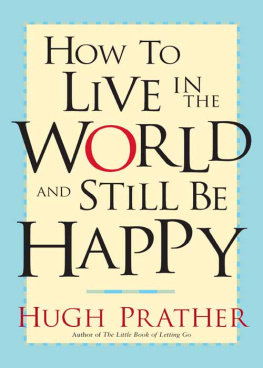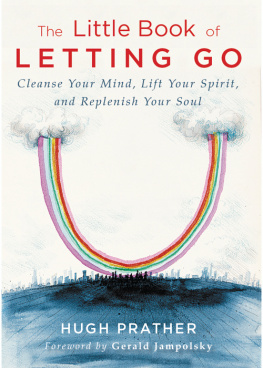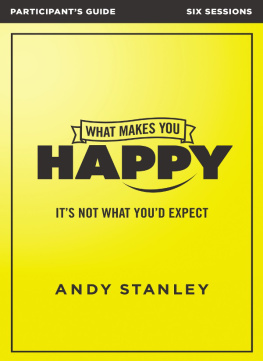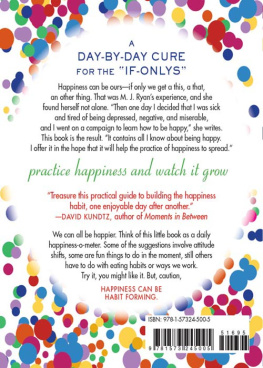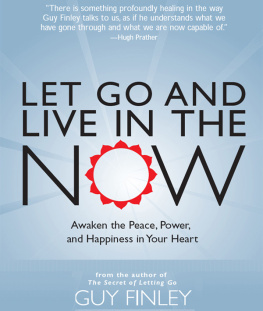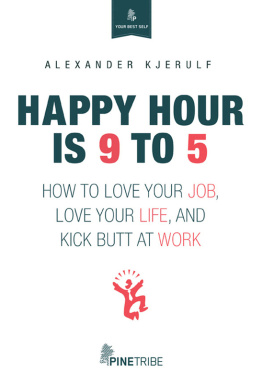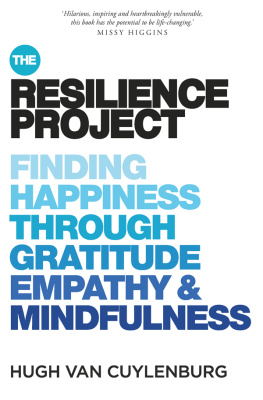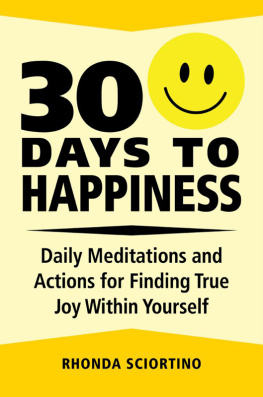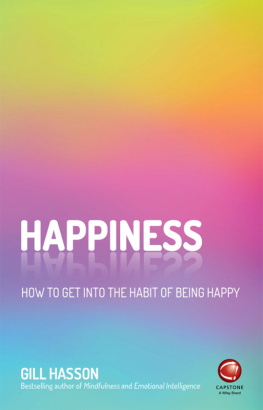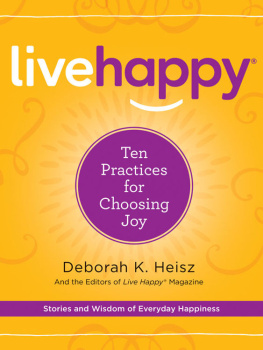More praise for
HOW TO LIVE IN THE WORLD AND STILL BE HAPPY
Hugh Prather's gentle spirit and infinite wisdom give us the tools and insight to see what happiness really means and where it resonates. In these times of spiritual awakening, this book serves as a beacon lighting the path to happiness.
JACKIE WALDMAN, author of
Teachers with the Courage to Give and Teens with the Courage to Give
How to Live in theWorld and Still Be Happy gives focus to things we often forget: we each have power and we each have choice.
IYANLA VANZANT, author of
Yesterday I Cried and One Day My Soul Just Opened Up
Prather writes what he lives. By totally accepting his own humanity, he knows happiness.
CHANDRA ALEXANDER, author of RealityWorks
A balm to the soul, How to Live in theWorld and Still Be Happy is an invaluable map for our journey toward peace of mind and happiness.
SUE PATTON THOELE, author of
The Courage to Be Yourself and The Woman's Book of Confidence

Copyright 2002 by Hugh Prather
A version of this material was previously published as Notes on How to Live in the World and Still Be Happy.
All Rights Reserved. No part of this book may be used or reproduced in any manner whatsoever without written permission, except in the case of brief quotations in critical articles or reviews. For information, contact: Conari Press, an imprint of Red Wheel/Weiser, LLC, P.O. Box 612, York Beach, ME 03910-0612.
ISBN: 1-57324-818-5
Cover and book design: Suzanne Albertson
Author photo: John C. Prather
Library of Congress Cataloging-in-Publication Data
Prather, Hugh.
How to live in the world and still be happy / Hugh Prather.
p. cm.
Rev. ed. of: Notes on how to live in the worldand still be happy.
ISBN 1-57324-818-5
1. Conduct of life. 2. Happiness. I. Prather, Hugh. Notes on how to live in the worldand still be happy. II. Title.
BJ1581.2 .P74 2002
158.1dc21
2002010384
Printed in the United States of America.
02 03 04 05 TCP 10 9 8 7 6 5 4 3 2 1
Fortunately, this book has been equally Gayle's in the making and, together, we dedicate it to Bill Thetford.
HOW TO LIVE IN THE WORLD AND STILL BE HAPPY
CHAPTER
UNHAPPINESS
Love of Misery
Happiness is easy. It's letting go of unhappiness that's hard. We are willing to give up everything but our misery.
Clearly, we are all a little crazy. Yet to favor unhappiness over happiness may seem sane at first glance. Right now, the world is not an easy place to live, and it never really has been. So why should we think we can live in it happily? Or that we would even want to?
Take for example the things we desire. The irony is, if you want it, it's usually not good for you, and if you pursue it, it will hurt you. But who can help wanting and pursuing? And just look at the unhappy results. It doesn't matter whether the object of our desire is large or small, whether it is wealth, eminence, influence, or merely the juiciest gossip, the tastiest foods, the most erotic pleasures: The outcome is some degree of misery. We dismiss this as the the downside, but our fear of side effects and fallout weighs more heavily on our minds than perhaps we like to admit.
Surely the answer must lie in simple hard work. The key is to be a plodder who wishes little and seeks slowly. But even the plodder runs into one of life's ironies. The fruits of our labor, whatever slice of life they represent and however patiently earned, will be taken from us in the end. Lifetime after lifetime, the story is retold of eventual loss, loneliness, and painful death. We will see everyone we know die, or they will see us die. Our loved ones may be in the room when our life ends, but they can't die for us. Can anyone realistically escape how the story ends? And knowing well the outcome, how can anyone expect to live happily and at peace?
So perhaps the potential for happiness is in the many years leading up to deathall the good times that outweigh how our life will end.
No matter what our age, nothing we see in the world is wholly reliable. Even the preschool playground is a place where someone is your best friend today but tomorrow wants only to play with some other child. There is no place where we cannot wear out our welcome. Parents turn away from their children in a thousand ways, and when children grow up, they turn from their parents. In all walks of life, in every form of life, the strong prey upon the weak until they in turn are weak and are preyed upon. The world contains much physical beauty, yet everything lives off the death of something else. This is certainly not all there need be to our experience, but despite the few scattered exceptions, for these and countless other reasons the world is a very difficult place to live.
But is that difficulty a sufficient reason not to be happy? It would certainly appear so. And despite all the forms that misery takes, if there really were a way to live happily, wouldn't it be immoral, insensitive, or inhumane to choose that way for ourselves?
Is it moral to be happy when a quarter or more of the people on the Earth are starving? When a third or more of the nations are engaged in armed conflict? When the numbers of those who can cause nuclear catastrophe or some other form of global devastation are growing inexorably? And what of pollution, discrimination, endangered species, detention and torture, plagues and degenerative illnesses, the signs of pending geological cataclysm, and the worldwide increase in violence and terrorism? What our mood should be is...
Angry? Shocked? Sad? Outraged? Depressed?
And instead of applying ourselves to becoming happier, what we should be spending our time doing is...
Identifying and bringing to light the people who are causing all of this?
Working to defeat candidates who disagree with us?
Taking steps to protect our personal supplies of food, money, and shelter?
Giving away what we have to the needy?
Marching? Writing e-mails?
Giving speeches? Holding prayer vigils?
Fear of Happiness
These are indeed bitter questions. And few have agreed on an answer. Obviously there is no widespread consensus, and it's equally obvious there never has been. Nor is it the purpose of this book to make another futile attempt to rally support for still one more unworkable solution. It should be clear that there is entrenched guilt over lightheartedness and substantial fear that when we take time out to be happy we are not protecting our interests, and certainly not doing all we could for the world.
Although for many it's perhaps unconscious, we carry with us the sabotaging belief that we don't deserve to be happy. To have any aspect of our lives run more smoothly than is natural is somehow proof of our guilt. Whenever things are going too well, we fear some vague, undefined retribution, as if the world has a consciousness that keeps track of these things, and since we are not getting our quota of hardship, the balance soon will be set right.
The news and entertainment media contribute to this attitude. It is very difficult to sit in front of the TV night after night and not come to believe that tragedy is to be expected in every life and that some form of natural law is being violated if this is not presently true for us.
From radio, newspapers, TV, and the Internet; from causeoriented movies, books, and magazines; from scare letters on behalf of every conceivable cause; from a constant stream of out-of-town speakers; and from the warnings and admonitions tucked in conversations throughout the day, we get a steady picture of a world ever fretting and wringing its hands. Whether in good times or bad, the ordinary and the prominent all do it. So we assume there must be some value in this time-honored attraction to misery.

